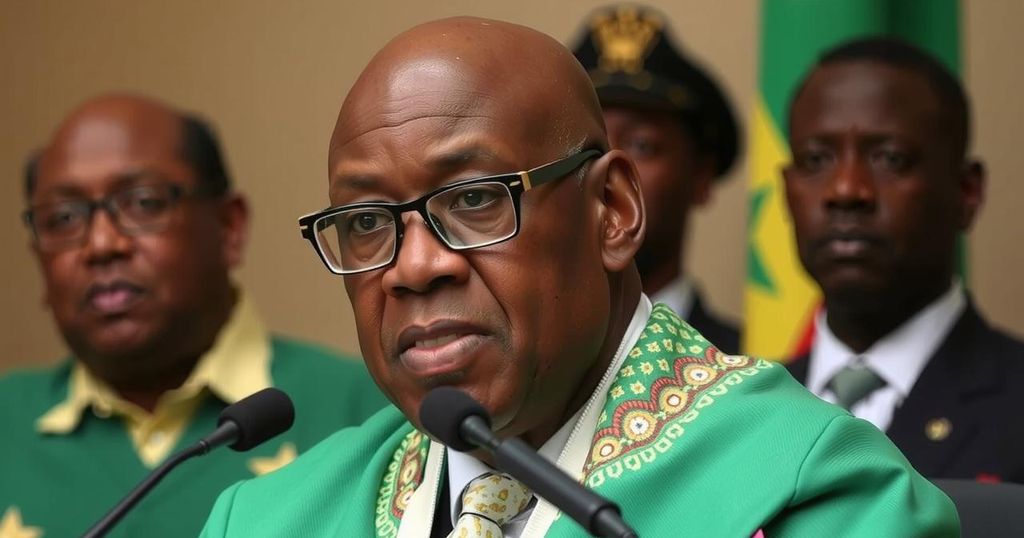Issa Kaou N’Djim, a political figure in Mali, has been sentenced to two years in prison for criticizing the military junta of Burkina Faso. His comments led to the closure of Joliba TV News and reflect ongoing government repression against dissenters and the press. The sentencing comes amidst heightened tensions following the abduction of opposition figure Ibrahim Naby Togola, indicating a deteriorating political climate in the region.
A Malian court has sentenced political figure Issa Kaou N’Djim to two years in prison, including a one-year suspended sentence, for critical remarks regarding the military junta of neighboring Burkina Faso. The comments, made during a broadcast on Joliba TV News, prompted legal repercussions leading to the closure of the station by authorities. N’Djim, who previously supported Mali’s junta leader Assimi Goita, has faced increasing scrutiny from the military regime as it intensifies measures against dissenters and the press. This incident follows the concerning abduction of fellow opposition figure Ibrahim Naby Togola, further escalating fears regarding political repression in the region. Mali and Burkina Faso, both under military rule following recent coups, have been criticized for their oppressive tactics against media and opposition voices.
The political landscape in Mali and Burkina Faso has significantly deteriorated since military coups ousted civilian governments in 2020 and 2022, respectively. The ruling juntas have enforced strict measures against dissent, leading to the imprisonment of critics and the closure of media outlets. This environment of repression is further emphasized by arrests and attacks on political figures, revealing a concerning trajectory for civil liberties and political discourse in the Sahel region. The military-led governments justify these actions as necessary for national stability amidst ongoing security crises.
In summary, the imprisonment of Issa Kaou N’Djim highlights the increasing repression faced by opposition voices in Mali amidst a backdrop of military rule. As government crackdowns on dissent continue, including the abduction of political figures, the situation in the Sahel remains precarious. The actions taken by the Malian authorities signal a concerning disregard for free speech and the political freedoms of its citizens, raising alarm about the future of democracy in the region.
Original Source: www.voanews.com






